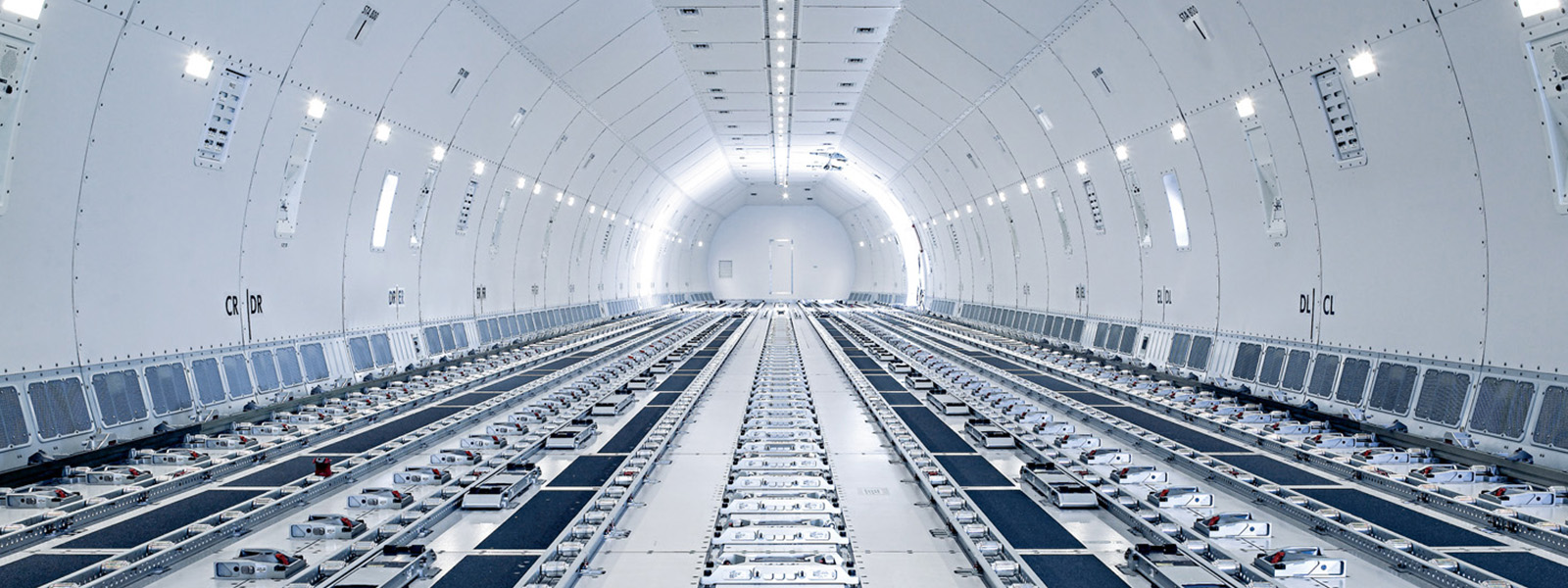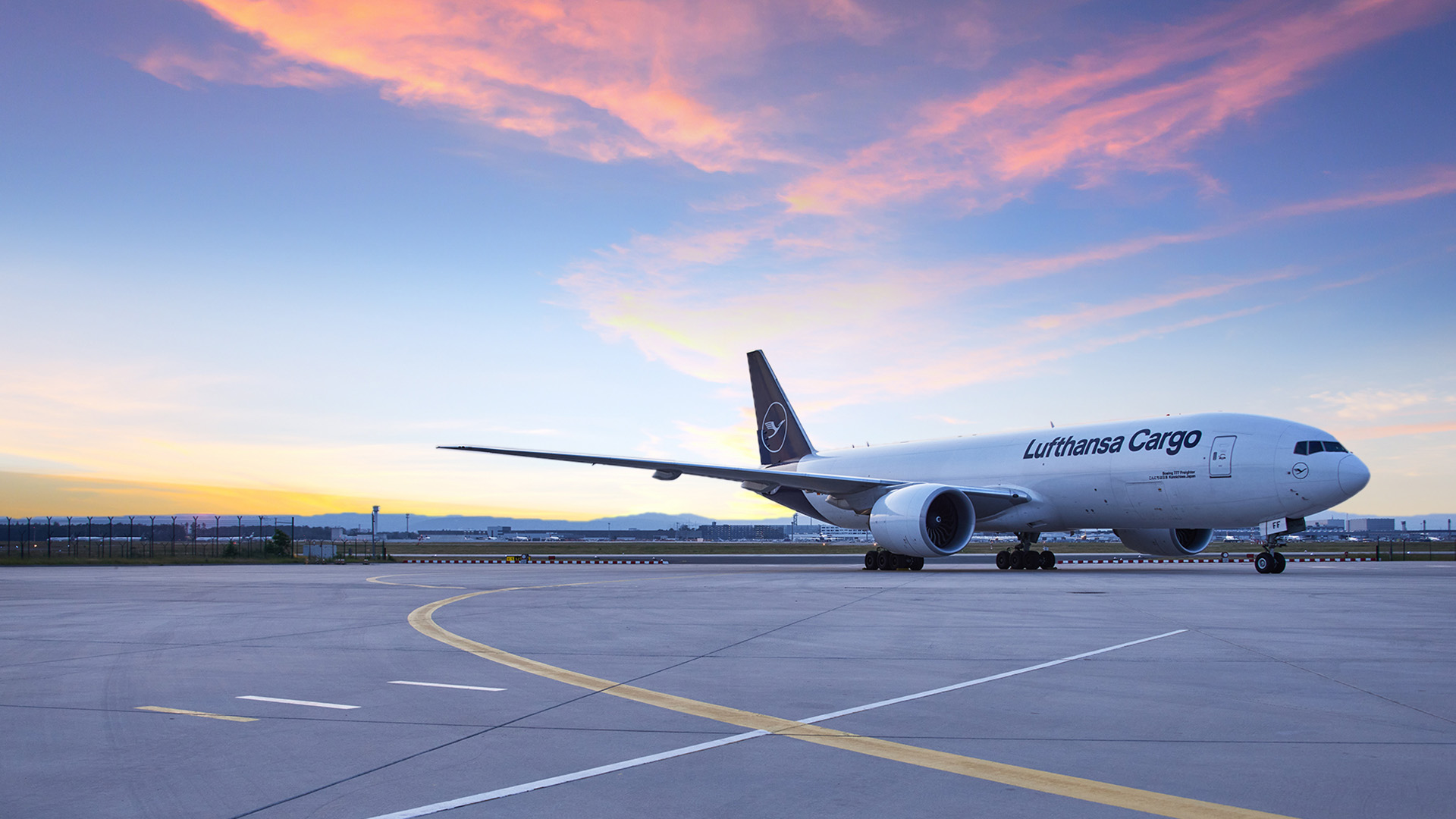Lufthansa Cargo
To keep track of all its assets and resources, Lufthansa Cargo centralized its inbound and outbound cargo planning and scheduling with DELMIA Quintiq.
By centralizing our cargo planning processes and automating certain tasks with DELMIA Quintiq, we hoped to increase efficiency and reduce processing time. Through enhanced planning, our aim is to deliver cargo more reliably and efficiently while saving costs.
Challenge
Safely transporting millions of tons of cargo to more than 300 destinations around the world, Lufthansa Cargo needs state-of-the-art technology to handle all aspects of its inbound and outbound cargo planning. As part of the company’s digital transformation, it wanted to increase resource efficiency, make its workload more transparent and reduce total processing time.
Solution
Lufthansa Cargo uses DELMIA Quintiq to manage cargo planning and scheduling at its primary cargo hub in Frankfurt, Germany, bringing together forecasting, planning, steering and monitoring capabilities within a single solution.
Benefits
Using DELMIA Quintiq, the company benefits from a streamlined process flow from forecasting and inbound distribution planning to inbound scheduling and outbound planning. With full visibility of its Frankfurt operation, Lufthansa Cargo can optimize its resources, achieve a steady and manageable workload and flex to proactively deal with peaks in demand. This automated approach saves 90,000 sheets of paper per year.
Keeping cargo flowing around the world
Whether it’s blueberries or racing cars, Lufthansa Cargo has the ways and means of getting any type of cargo to wherever it needs to go in the world. Every year, millions of tons of cargo pass through the Germany-based company’s logistics centers, travelling in Boeing 777F long-haul freighters, Airbus A321F medium-haul freighters and the belly capacities of Lufthansa and partner passenger aircraft to more than 300 destinations around the globe.
Delivering seamless and efficient transport solutions for such a wide range of cargo is a logistical puzzle that requires advanced tracking and monitoring systems and cutting-edge digital tools to solve.
“We must ensure that each shipment is delivered on time and that requires good coordination and effective transport planning,” said Marcus Milla, Team Lead of DevOps in Production Planning and Special Functions at Lufthansa Cargo. “For example, blueberries need to be kept at specific temperatures to maintain their freshness, while racing cars require careful loading and secure transportation.”
Lufthansa Cargo’s primary cargo hub in Frankfurt, Germany handles 2.2 million tons of cargo per year. To keep track of all its assets and resources, the company made the decision to centralize its inbound and outbound cargo planning and scheduling. It found the answer in DELMIA Quintiq.
Customized solution for air cargo
Lufthansa Cargo worked with its technology partner Ab Ovo to develop a fully customized planning solution using DELMIA Quintiq, benefitting from their combined expertise in air cargo handling to define the specific processes and workflows that needed to be digitalized. Ab Ovo oversaw the entire process from development to implementation.
“A trusted and go-to partner with deep knowledge of both the industry and DELMIA Quintiq software is crucial for a successful implementation of such a complex planning solution,” Milla said. “Ab Ovo is fulfilling this strategical partnership, both on an operational and management level.”
As part of the implementation, Ab Ovo and Lufthansa Cargo launched a joint competence center to continuously improve the planning and scheduling solution, bringing together resources from both companies and rolling out new features using an agile DevOps methodology. At every stage, Ab Ovo delivered training to key users to make sure they take full advantage of DELMIA Quintiq’s rich functionality.
“By using DevOps, we were able to deploy the system more quickly and efficiently,” said Chudi Udeogu, Product Owner of Cargo Planning IT at Lufthansa Cargo. “We try to deliver new features every three weeks, which results in a fast time to market. We also involve our business in the feature development and roadmap to ensure we meet their ongoing expectations.”
“The current production status is shown in real time to support focused and purposeful intervention,” Udeogu said. “Manual activities have been automated and relevant information digitalized. We save approximately 90,000 sheets of paper per year.”
Optimizing cargo handling
Today, Lufthansa Cargo uses DELMIA Quintiq to manage all aspects of its inbound and outbound cargo planning and scheduling at its main hub in Frankfurt. This includes:
Forecasting
The expected load factor is automatically determined up to seven days in advance. Drawing from historical and current booking data, Lufthansa Cargo can effectively plan resources, calculate demand and make last-minute adjustments in the workforce to deal with production peaks.
Planning
Individual unit load devices (ULDs) are automatically prioritized based on freight and resource availability and scheduled in the system.
Steering
The Frankfurt hub now has a standardized system for the reliable planning and steering of its shipment streams. Many manual tasks have now been automated.
Monitoring
Clear KPIs track the live production status so that issues can be flagged automatically and quickly rectified.
Effective planning and forecasting
Overall, DELMIA Quintiq has proven a key tool for helping Lufthansa Cargo to optimize its cargo handling operations by decoupling production peaks from the flight plan and increasing resource efficiency. This allows the company to fit its resources around the freight coming towards it, and quickly make adjustments.
“By combining historical and current data, we can gain insights into past trends, patterns and fluctuations in demand and resource utilization,” Udeogu said. “Forecast planning makes it possible to estimate the expected workload up to seven days in advance. We can now assess whether enough resources, such as floor space and personnel, are available or whether proactive intervention is required.”

Its distribution plan provides a complete overview of incoming flights and automatically manages where freight should be distributed within the cargo hub and keeps ground handlers fully informed. Once freight has been distributed to one of 40 targets within the Frankfurt hub, Lufthansa Cargo creates a schedule for the next 24 hours showing the blocked capacities and the live handing status of every piece of cargo.
“The system automatically schedules inbound and outbound ULDs based on freight and floor space availability according to workload and urgency,” Udeogu said. “It tries to distribute the workload evenly to avoid peak loads that create high pressure in dispatch. Decades-old paper processes have been replaced by the introduction of iPads in the hall and on forklifts.”
Enhanced visibility at every stage allows Lufthansa Cargo to be more flexible and adaptable and keep up with growing demand for its services.
“By improving planning quality and transparency with intelligent algorithms and KPI-based planning, Lufthansa Cargo can handle more freight in its buildings and improve punctuality,” Udeogu said. “This increases both efficiency and customer satisfaction.”
Towards global transparency
Feedback from Lufthansa Cargo staff about DELMIA Quintiq has been resoundingly positive. They say that DELMIA Quintiq helps them to work more productively and gives them the visibility they need to improve decision-making.
“The acceptance of the tool is very good, and we have regular feedback rounds with our business to ensure quality,” Milla said. “Requirements for improvement are continuously implemented in our system.”
Based on the success of integrating DELMIA Quintiq into its IT landscape, the company now plans to expand the solution across its wider organization, including its cargo station in Munich.
“By extending the production planning and scheduling solution to Munich, we’ll improve collaboration with our Munich ground handlers, allowing for the automated processing of delivery notifications and real-time data exchange,” Milla concluded. “It will give us full transparency of current production capacity, as well as a forecast for the upcoming days, helping to improve decision-making. Other stations are also on our roadmap.”

Focus on Lufthansa Cargo
Lufthansa Cargo is one of the world’s leading companies in the transport of air freight. The company currently employs about 4,400 people worldwide. Lufthansa Cargo focuses on the airport-to-airport business. The cargo carrier serves around 300 destinations in more than 100 countries with its own fleet of freighters, the belly capacities of passenger aircraft operated by Lufthansa German Airlines, Austrian Airlines, Brussels Airlines, Eurowings and SunExpress, and an extensive road feeder service network. The bulk of its cargo business is routed through Frankfurt Airport.
For more information: https://lufthansa-cargo.com

Focus on Ab Ovo
Ab Ovo’s mission is to help supply chain and logistics companies be more efficient and sustainable by enabling them to make better decisions through smart digitization. The company adds value through AI-driven transformation and provides solutions that digitize processes and extract actionable insights from data. Having worked with DELMIA Quintiq for more than 20 years, Ab Ovo possesses the experience its customers need to guide them through their implementation and delivers ongoing support to ensure they gain continuous value from their solution.
For more information: https://ab-ovo.com

